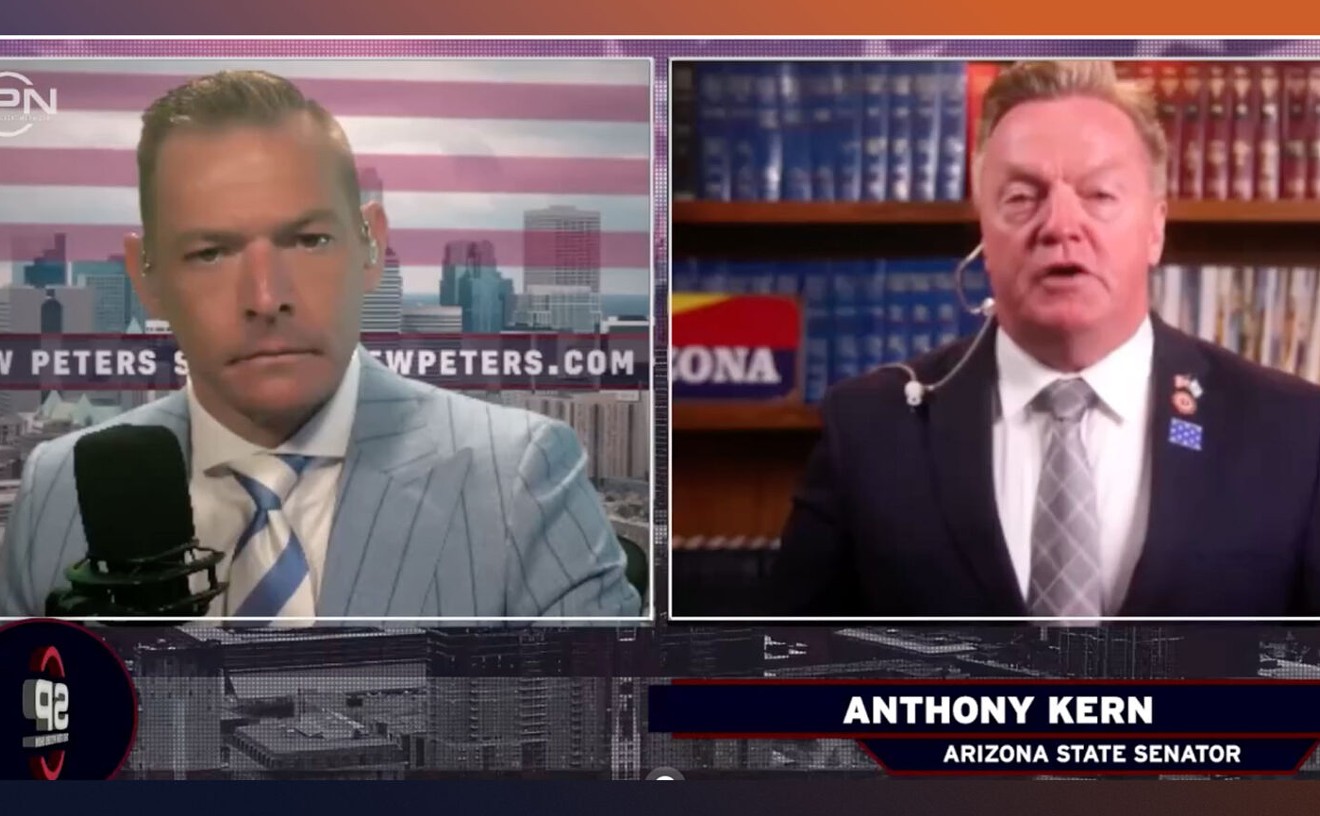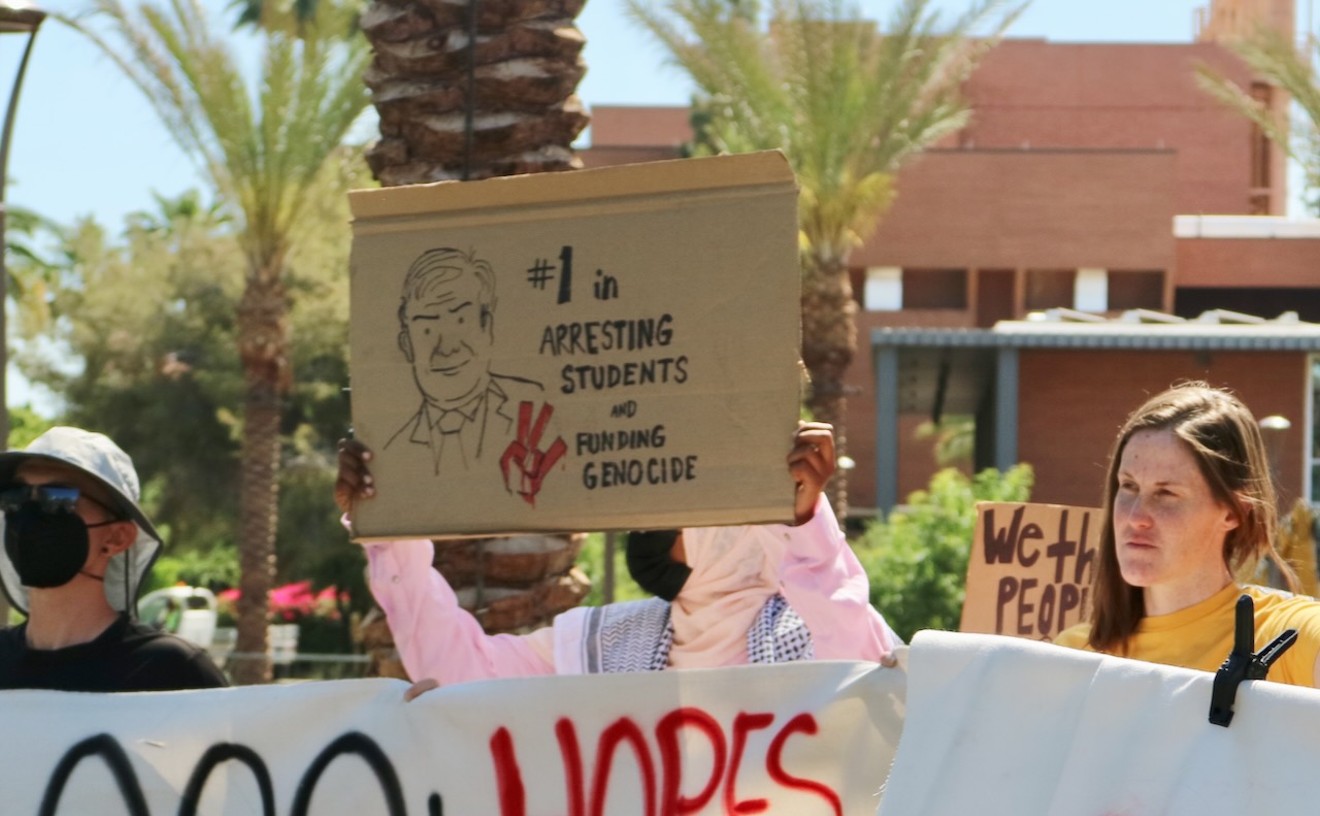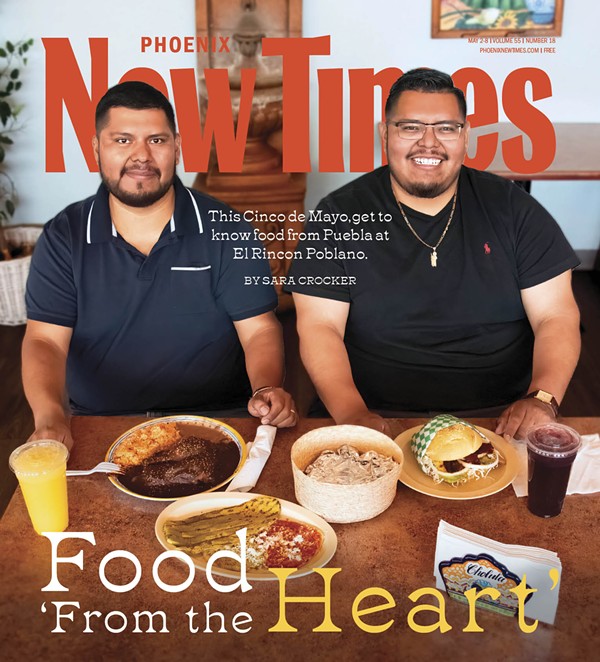Superior Court Judge Frank Galati had just released the 34-year-old Phoenix resident from prison after an extraordinary six-year legal battle that Donald fought, mostly by himself, from inside a cell.
Galati took the rare step of siding with a prisoner -- rather than his attorney -- after an evidentiary hearing on January 11. By the time he was freed, Donald had served most of a 10-year sentence that, as the judge found, he shouldn't have had to serve.
The judge said that in 1993, when Donald was facing robbery charges, his attorney had failed to explain what might happen if he rejected a favorable plea bargain.
Galati said he didn't believe assistant public defender John Taradash, who testified that he had accurately conveyed the plea offer to Donald. Taradash said that Donald had rejected the deal, which would have meant, at most, four years behind bars.
Instead, Donald risked a jury trial, and was convicted. Then, in what Donald recalls as an unexpected turn of events, Galati sentenced him to 10 years in prison, with no chance of parole.
Donald took his case to the Arizona Court of Appeals, arguing from prison that Taradash should have been more clear about all the legal options he had faced.
In 2000, the appellate court made case law by surprisingly agreeing with Donald. (Lawsuits filed by prisoners are rarely successful.) County prosecutors were so disturbed by the ruling that they asked the U.S. Supreme Court to intervene -- which it declined to do.
"I have never changed the face of the law, but this guy did it -- from a cell," says Brent Graham, an appellate attorney with the county's Office of the Legal Advocate. "What's sad is that it took so many years for it to get to this point."
But that seemed secondary last week, as a proud Victor Donald spoke of the tortured trail in which he evolved from street punk to career con to legal beagle.
Born in New Mexico, Donald says he moved to Phoenix as a youngster, where he attended South Mountain High School. He admits he ran with a bad crowd, which led to a September 1988 armed robbery for which he served almost four years in prison. Then, in 1993, Donald faced new charges after stealing about $250 from a Valley man.
That was when John Taradash was appointed to represent Donald. Records suggest he and Donald had a brief, confrontational relationship. Donald agrees that Taradash told him about the offer that called for a prison term of up to eight years.
But he insists -- and this was the important part -- that Taradash didn't tell him of the far greater potential penalties if he didn't take the plea. That would have been unusual. In discussing plea bargains, defense attorneys routinely ask clients to do the math, then decide if they want to risk longer sentences if convicted.
Donald recalls getting into a shouting match with Taradash about the direction that the defense was headed. Taradash soon left the case, and Donald represented himself until shortly before trial, when another public defender was appointed to assist him. The second attorney apparently mentioned nothing about a plea offer, which Donald says he assumed was off the table by then.
Then 25, Donald went to prison in December 1993. In 1996, after another attorney had looked over his case and found nothing worth appealing, Donald decided to revisit the case himself.
Donald says he soon learned -- for the first time, he insists -- that the 1993 plea offer called for "soft time." In this instance, that would have been a guarantee from prosecutors that he'd serve only half of his sentence, or a maximum of four years if he was a well-behaved prisoner.
"I went, 'No way did John Taradash tell me that. No way!'" Donald recalls.
The inmate composed his own appeal, typos and all, to which prosecutor Gerald Grant responded in January 1997.
"It seems more likely that [Donald] knowingly chose to take his chances at trial rather than accept a plea offer that required a prison sentence," Grant wrote.
In March 1997, Galati denied Donald's appeal, noting that: "Even if his counsel misinformed him of the consequences of the offer, it is too late."
Donald appealed to the Arizona Court of Appeals, which ordered the hearing that finally happened last month.
There, Galati heard testimony from both Victor Donald and John Taradash, with the burden of proof squarely on Donald. Taradash told the judge he recalled accurately conveying the plea offer to Donald, and that Donald had angrily rejected it.
In the end, the judge sided with the inmate over the attorney. After praising Taradash as a "highly ethical, completely forthright and honest lawyer," Galati hammered him.
The judge noted that Taradash had said prosecutors never had provided him with an actual draft of the plea offer. But Taradash changed his testimony after he was shown the formal plea offer.
Taradash tells New Times, "Although criminal-defense attorneys work very hard on behalf of their clients, mistakes may happen." He says the appellate court's ruling in Donald's favor was a good one, in that it has made defense attorneys, judges, and even prosecutors more careful in explaining and executing plea bargains.
That Victor Donald successfully represented himself in his appeal "is quite amazing," Taradash adds.
In siding with Donald, Galati ordered prosecutors to reinstate the original "soft" plea offer, which they did. Donald then pleaded guilty to the robbery charge, and the judge sentenced him to eight years in prison -- time he had already served.
"I have learned to respect the law," says Donald, who says he's already looking for a job, "and I have learned to look at things the way they are. In my case, I have a chance at making a new life for myself, and I plan to do it right this time."










